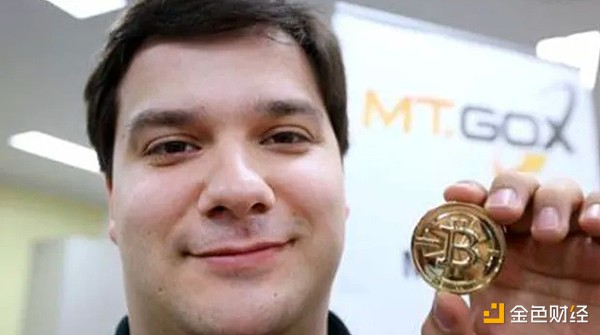Source: Vernacular Blockchain
Not long ago, former Binance CEO Zhao Changpeng was released from prison in the United States and returned to Dubai to attend industry events, which broke the outside world's speculation that he would be "pledged" by the United States for a long time. Recently, Zhao Changpeng was also included in the Hurun Rich List as the founder of the world's largest crypto trading platform. While people lamented that he would "get into trouble" as a rich man, looking back at the history of crypto development, many founders and executives of top crypto companies have been arrested and imprisoned, and some people even listed a long list of "cryptocurrency entrepreneurial risk lists". Some people can't help but ask: Why is the "prison risk" of the big guys in the currency circle so high?
Crypto tycoons walking on the tightrope
Since the birth of Bitcoin, the crypto industry has gone through more than ten years. During this period, entrepreneurs have been imprisoned, including some of the popular "big guys".
In the list of risks for cryptocurrency startups, there is the famous “Mentougou Incident” in the long run. In 2014, Mt.Gox, the world’s largest Bitcoin trading platform at the time, was hacked and lost hundreds of thousands of Bitcoins. Mark Karpeles, the former CEO of Mentougou, was sentenced for “suspected tampering with financial records” (some people suspected that he had embezzled, but no relevant evidence was found, and the theft incident became an unsolved case).

Mark Karpeles, former CEO of Mentougou
Recently, in addition to Zhao Changpeng, there are Do kwon, the founder of Luna, who was the most successful in the last bull market, and SBF, the founder of FTX. One has not been sentenced for "securities fraud" yet, and the other was sentenced to 25 years in prison and a fine of 11 billion US dollars for "financial fraud".

Arrested Luna founder Do kwon
In comparison, Zhao Changpeng's four-month imprisonment is relatively minor. His crime is "failure to implement an effective anti-money laundering program and violation of the US Bank Secrecy Act." To be precise, the company he manages (Binance) did not fulfill its anti-money laundering obligations and did not cooperate with the US sanctions policy. Although Binance is not a bank, no matter whether it is unfair or not, it is really helpless to deal with this matter.
It is said that crypto entrepreneurship is risky, but I didn't expect it to be so big. It is not an exaggeration to say that the entrepreneurship of the bigwigs in the circle is like "walking on a tightrope".
Five reasons why the "risk of imprisonment" of the bigwigs in the circle is high The last point is the key
The charges for the imprisonment of the bigwigs are varied. Before they went to prison, each of them was a "prodigy" with extraordinary talents. If you say that they are just "weak legal awareness", this reason is definitely untenable. Comparing and analyzing the events related to the imprisonment of these bigwigs, it is not difficult to find some commonalities and the potential logic behind them. Finally, it is concluded that there are at least five reasons for the high "risk of imprisonment" of the bigwigs in the circle:
1) Unable to resist temptation, radical greed
Under normal circumstances, many leading platforms and projects in the crypto industry will have to host tens of billions of US dollars of assets for users. In an era where liquidity is money and people are guarding a mountain of gold every day, even if they do nothing, they can still earn a lot of money for free. However, many people cannot resist the temptation and adopt radical strategies driven by human nature, diverting users' assets into high-risk markets, making the hole bigger and bigger, and finally bursting into tears. 2) Innovation and illegality are only separated by a wall. Many times, innovation means breaking the existing rules. Crypto projects were once decentralized Internet financial innovations. At this time, the old regulatory measures must not keep up and are not in place. There are no clear regulations. In most cases, it is necessary for innovative companies to consciously regulate their behavior, but many times, if you are not careful, it will evolve into a difficult situation of "P2P finance".
Although the supervision of some countries and regions is very inclusive of financial innovations such as encryption, some activities are ultimately a major challenge to the existing system. In many cases, there are no clear regulations on what can be done and what cannot be done, and where the red line is. These make innovation and illegality only separated by a wall, which is also the frustration of all entrepreneurs.
3) The original sin of "encryption"
Today, even though encrypted assets represented by Bitcoin have long entered the mainstream vision of the public, there are still quite a few people who think that this is a "dark" industry, because it can be used for many illegal purposes and facilitate crime. In addition, the various sudden wealth of many early encrypted asset holders has led to the "unequal distribution of wealth" in the eyes of some people, and hatred has been filled.
Due to differences in cognition, people who do not recognize and accept the encryption industry look at it with tinted glasses. These people are widely present in the judicial team. In this way, when the original sins of "encryption" are listed one by one by them, they will continue to launch various legal challenges to encryption entrepreneurs and related projects.
Of course, as crypto assets become mainstream, more and more people have put down their prejudices after further understanding them, but we cannot expect a reversal overnight, which takes time.
4) Global compliance is costly and difficult
Take crypto trading platforms as an example. Since crypto platforms are usually open to global users, global crypto asset financial activities, like other traditional financial institutions, need to comply with different laws and regulations, as well as the long-arm jurisdiction policies of some countries. In addition, they also have to face the difficulties created by regulators wearing "tinted glasses" in some regions.
Take Paypal, a traditional multinational financial institution, as an example. Every time it deploys related businesses in a country, it must apply for various local licenses, face different regulatory policies, and deal with regulators in different regions. If a certain link is not done well, it is likely to face local fines of hundreds of millions of yuan, and the human and material resources invested in this process are difficult to measure.
As early as 2022, Zhao Changpeng said on social media that Binance has spent more than $1 billion on global compliance. Obviously, this number is constantly increasing. Coupled with the billions of fines paid in the process of communication and settlement with US regulators this year, the overall figure is indeed an astronomical figure.
5) Competition for "international discourse power" in the crypto market
Since El Salvador announced "All in" Bitcoin, we already know that national players have begun to enter the market. Cryptocurrency assets such as Bitcoin not only represent innovation in financial payments, but also represent the next generation of Internet technology such as Web3. In terms of discourse power in innovative technology, even if they understand that there are certain risks, most countries are unwilling to lag behind.
Take the previous case as an example. The United States' handling of FTX and the punishment of Binance eventually put their founders in jail, and FTX disappeared from this track. Binance paid billions of dollars to reach a settlement with regulators. At the same time, the mediation plan also requires that the U.S. Treasury Department will retain access to Binance accounts and systems for five years.
The purpose of the various U.S. regulatory departments is not only to maintain the stability of the financial market, but also to crack down on the top trading platforms, requiring them to comply with the long-arm jurisdiction of the United States and the rules of the game specified by the United States, and also to play a demonstrative role in the crypto industry. Now there are signs that some countries are using blockchain and encrypted assets for international trade to bypass the hegemony of the U.S. dollar.For the United States, Bitcoin and other encrypted assets are still a "sword". If this sword cannot be "destroyed", it can only be controlled in some way in its own hands, or guided to use it for its own benefit, so that it can become the biggest beneficiary.
In the United States, platforms such as Binance that have a high voice in the encrypted asset market are handled and deeply monitored. The Bitcoin spot ETF that has been pending for many years was suddenly approved, and then the Ethereum spot ETF was also approved. Only then did the relevant U.S. capital "feel at ease" to flow into the encrypted market from these safe paths. Since then, the United States has brought the encrypted market under its control and gained a certain degree of "pricing power".
Trump, who just won the 47th US President, mentioned in his speech at the Bitcoin Conference that Bitcoin is not only a technological miracle, but also, as you know, a miracle of cooperation and human achievement. The reason why he came to the Bitcoin community to give a speech is because he adheres to the principle of "America First". His vision is to let the United States dominate the future and hope that the United States will become a trend-setting country. He wants to ensure that the United States becomes the crypto capital of the earth and the world's Bitcoin superpower.
Summary
For centralized platforms and project teams, regulation is always inevitable, and countries and regions that have properly balanced regulation and innovation will become the biggest beneficiaries of this technology and innovation. With the recent US election dust settled, crypto President Trump, who is friendly to the crypto industry, is about to take office, and will also bring a more friendly regulatory environment. I believe that in the future, crypto entrepreneurs including Zhao Changpeng and other currency circle bigwigs will finally let go of their "hanging hearts" and will "rest assured" to promote the accelerated implementation of encryption and Web3 application innovation in the future.
 Weatherly
Weatherly






